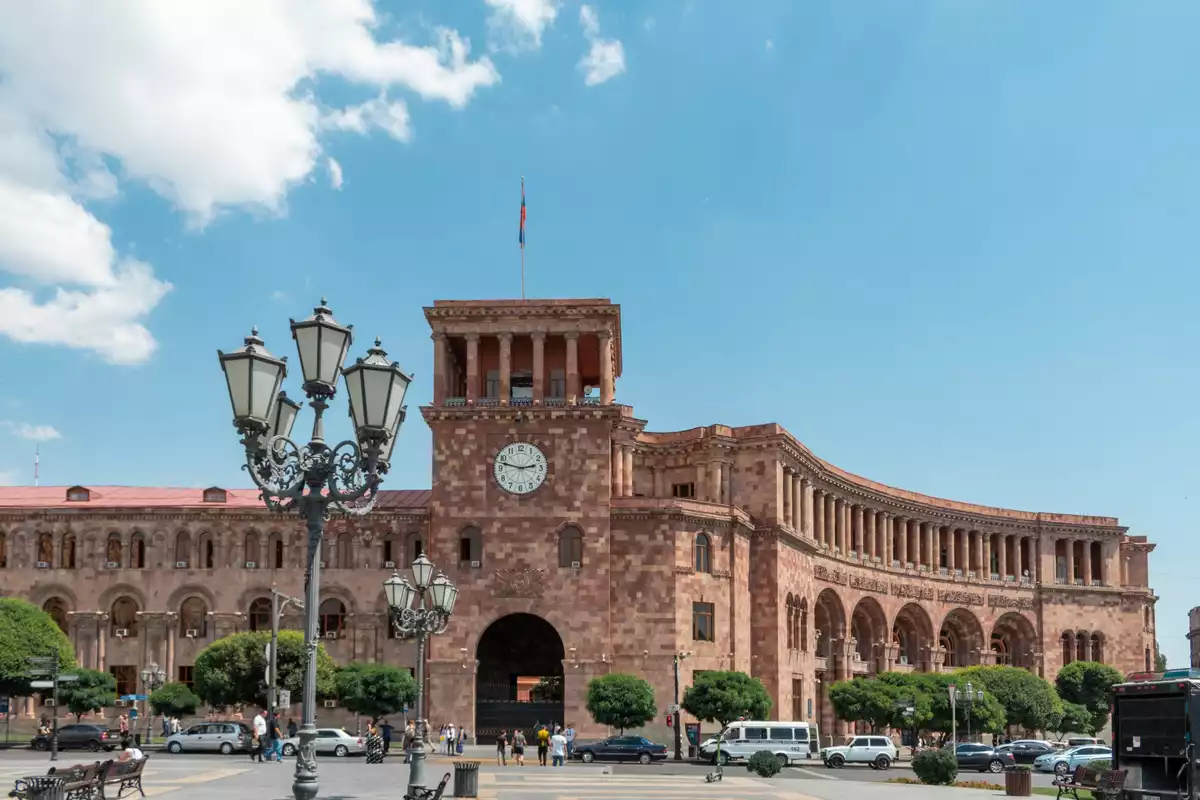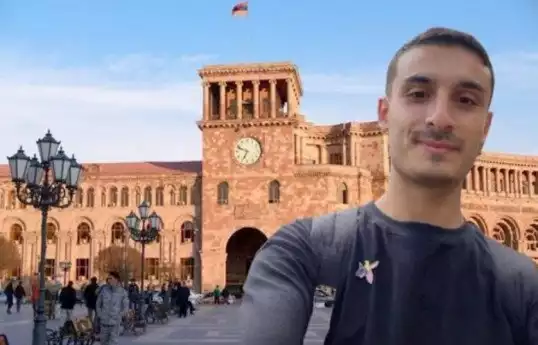
Photo: Shutterstock
By Tural Heybatov
By all accounts, the path toward a peace treaty between Armenia and Azerbaijan should be within reach. Most of the remaining issues are technical, solvable through negotiation and political will. Yet one fundamental obstacle continues to block progress - and it’s not about borders or security guarantees. It’s about mindset.
Armenia still appears unwilling - or perhaps unable - to break free from a deeply entrenched culture of ethnic nationalism and historical denial. This attitude not only poisons relations with its neighbors but also undermines any genuine effort to build a peaceful future.
The most recent example speaks volumes. Armenian authorities have launched a criminal investigation against a Turkish blogger, Ogün Özdemir, who recorded a video while visiting Yerevan. What was his alleged crime? He livestreamed from Republic Square, congratulated the Azerbaijani people on the Novruz holiday, and stated that he was standing on Azerbaijani land - a clear reference to the historical presence of Azerbaijanis in what is today Armenia. He also sang a verse from the song Karabakh and flashed the Bozkurt (Grey Wolf) hand sign.
The video quickly went viral, prompting outrage on Armenian social media and eventually a full-blown investigation. Some Armenian users demanded that the blogger be identified and punished. The National Security Service responded by opening a case, allegedly on the grounds of incitement to ethnic hatred - though no such hatred was expressed in the video. Özdemir didn’t call for violence. He didn’t insult Armenians. He merely reminded viewers of a historical narrative that Yerevan has long tried to erase: the existence of Azerbaijanis in what Armenians now consider exclusively their homeland.

Armenian authorities have launched a criminal investigation against a Turkish blogger, Ogün Özdemir, who recorded a video while visiting Yerevan
This is not the first time such behavior has surfaced. Earlier this year, Armenian authorities initiated a similar investigation after a group of Iranian tourists sang the song Karabakh in central Yerevan. For nearly a month, the video went unnoticed. But once it reached Armenian social media, it too became a “scandal” - prompting charges of spreading ethnic hatred, as though expressing solidarity with Azerbaijanis was itself a criminal act.
Let’s be clear: these are not isolated incidents. They reflect a broader truth - that Armenian society, or at least a significant part of it, remains gripped by revanchist sentiments and collective denial. Any mention of Azerbaijani heritage or history on Armenian soil is treated as provocation. The idea of Azerbaijanis returning to their ancestral homes in Western Azerbaijan (modern-day Armenia) is considered not only unacceptable, but existentially threatening.
This mindset, unfortunately, finds expression at the highest levels. In one particularly telling moment, an Armenian social media personality and self-identified separatist who relocated from Karabakh to Armenia, stated: “Millions of Armenians around the world deeply hate Turks, and no one condemns them - because it’s their hereditary right.” It’s hard to imagine a more candid admission of the intergenerational transmission of hatred being treated as a cultural norm.
Peace, however, demands the opposite: a break with the past, the courage to recognize history, and the political maturity to pursue reconciliation. So long as nationalist hysteria determines state policy - including criminal charges over harmless songs or greetings - Armenia will remain trapped in its own isolation.
And yet, official Yerevan continues to speak the language of peace. It expresses interest in normalization with Türkiye. It engages in talks with Azerbaijan. But actions speak louder than words. Criminalizing a video in which Azerbaijani is spoken in Yerevan - as if the language itself is a threat - sends a very different message.
If Armenia truly wants peace, it must align its domestic policies - including its legal system - with international norms. That means rejecting the idea that ethnic pride justifies censorship or criminal persecution. It also means recognizing that reconciliation starts with acknowledging uncomfortable truths about the past - and about the diversity that once defined this region.
Otherwise, the message is clear: Armenia is not preparing for peace. It is preparing for another round of confrontation. And if that path continues, the next time the song Karabakh is sung in the streets of Yerevan, it may not be by tourists or bloggers - but by the very people it seeks to silence.
Share on social media